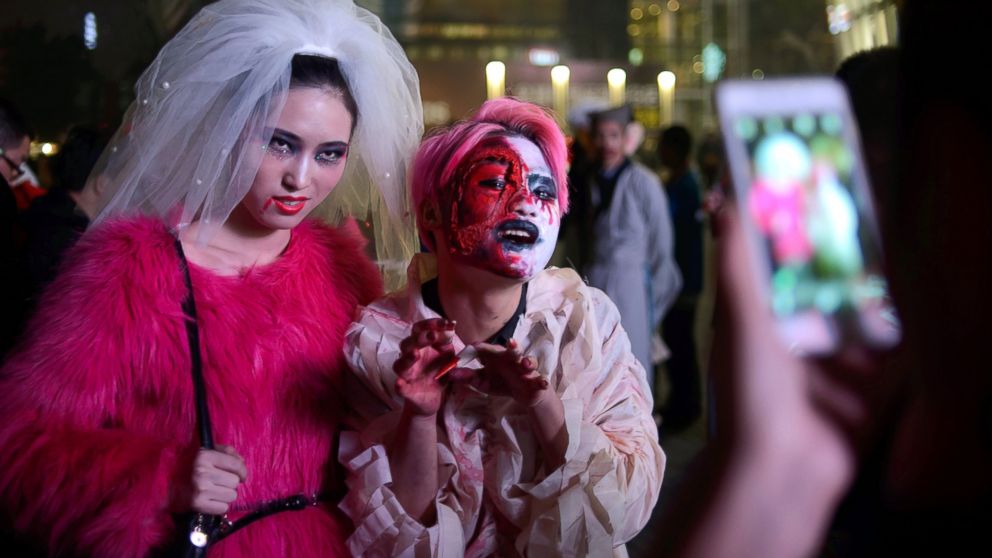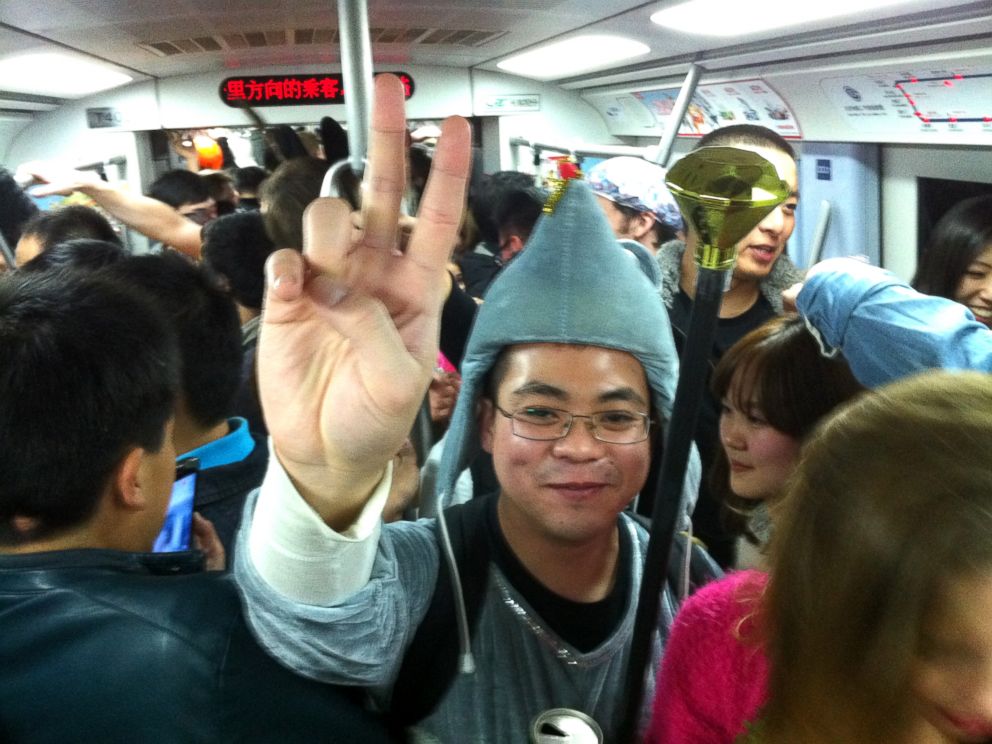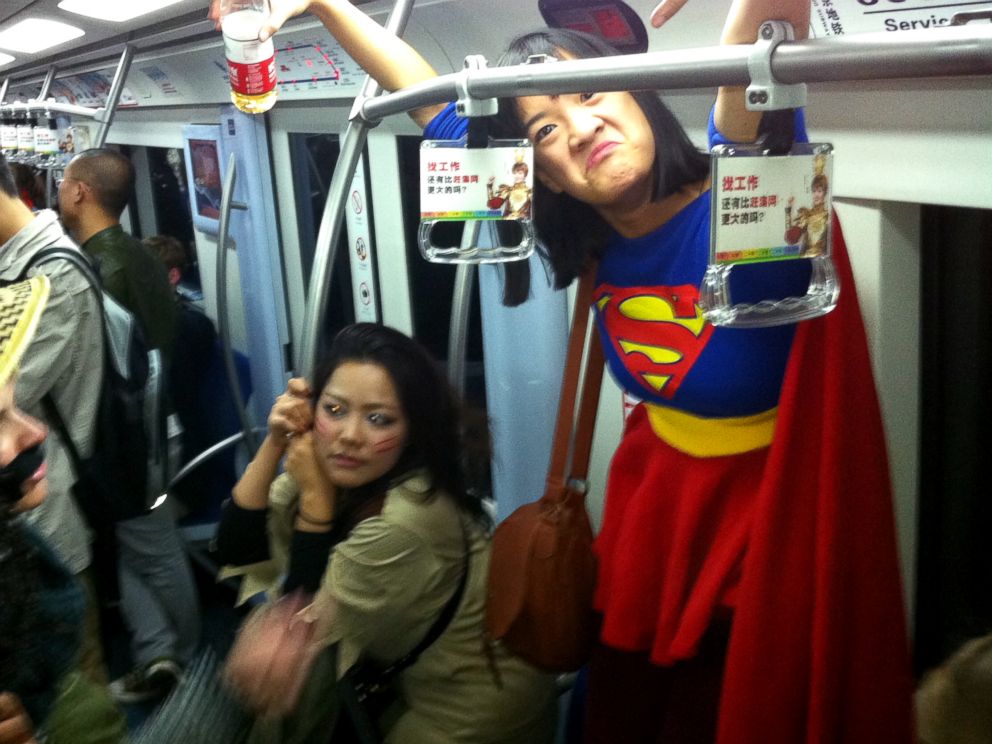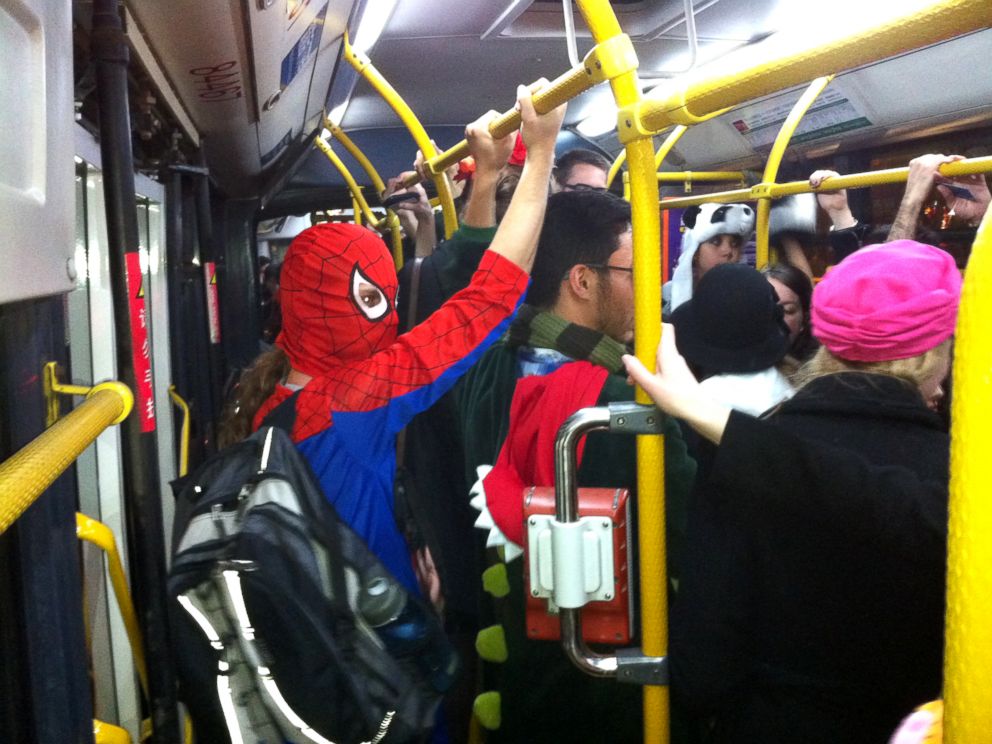
Dressing up as a monster or a zombie for Halloween might get you
arrested tonight in Beijing because authorities fear the costumes could
cause "panic."
Expats in Beijing had organized Halloween parties on the subway in the
past two years. Each year, the weekend before Halloween, “ghouls” and
other Halloweeners would hop on subway Line 2 carrying bottles of beer
and mixed drinks. When subway security personnel tried to stop the
crowds, they were often swallowed up in the throngs of revelers – which
included many people dressed up as subway security guards.

Halloween is not celebrated in China and the Beijing government
discourages superstitions. The warning against spooking subway riders
was carried in the Beijing Times which said authorities feared the
gruesome costumes could cause "panic."
5 Ways Halloween Has Changed Since You Were a Kid
The Beijing Times quotes police as warning trick-or-treaters that if
they “insist on getting on the subway, or the chaos is serious and
causes a stampede or other public safety incident, the police will deal
with it severely in accordance with the law.”
The crackdown comes ahead of Beijing hosting the Asia-Pacific Economic Cooperation
conference next month. Leaders from all over the world will be gathered
in the capital for what is being hailed as the biggest international
event here since the 2008 Olympics.

In order to make sure the APEC summit runs smoothly, the Beijing
government has been taking some tough measures. Factories in and outside
of Beijing have been shut down for air-quality control. Starting from
Saturday and running until Nov. 12, the city will begin widespread
traffic controls, and cars can only hit the streets every other day,
depending on their license plate numbers. Authorities will increase
general security measures, including banning monsters and zombies that
usually jam the subway line each Halloween.
Many Chinese have commented on the internet and expressed little sympathy for the Halloween partiers.
One internet user from Nanjing wrote: “Please consider children and old people in public places.”

